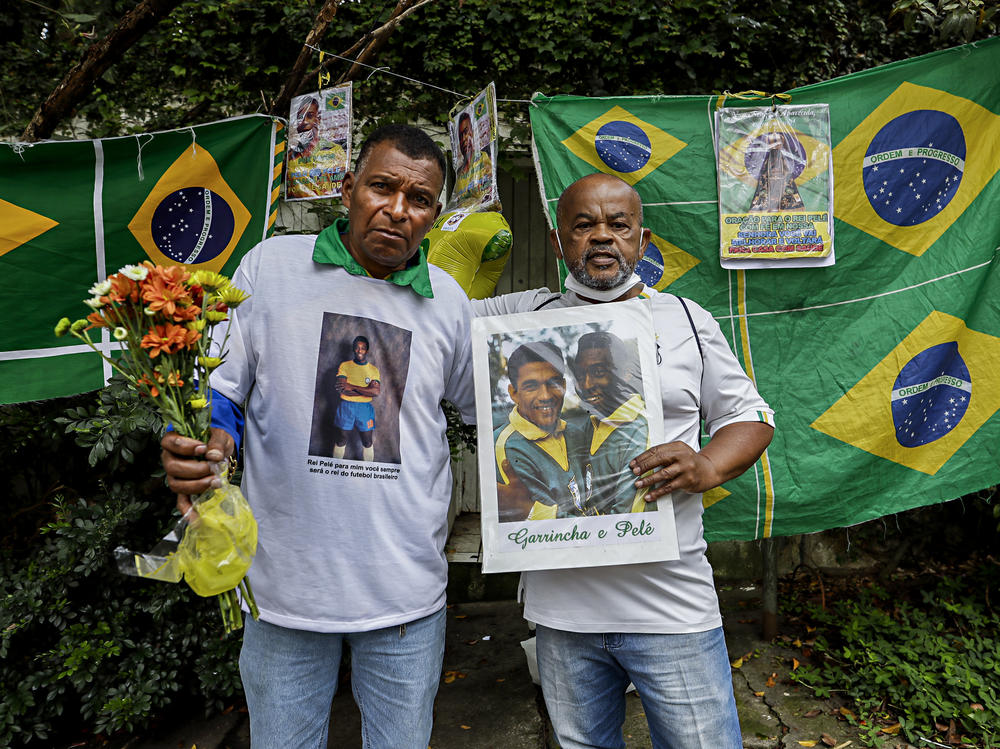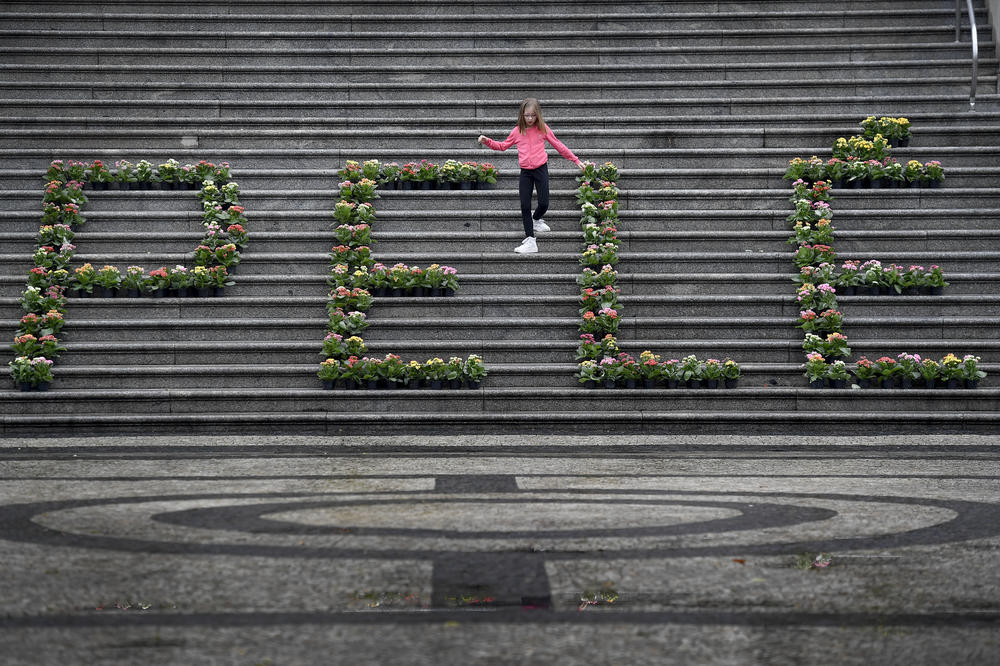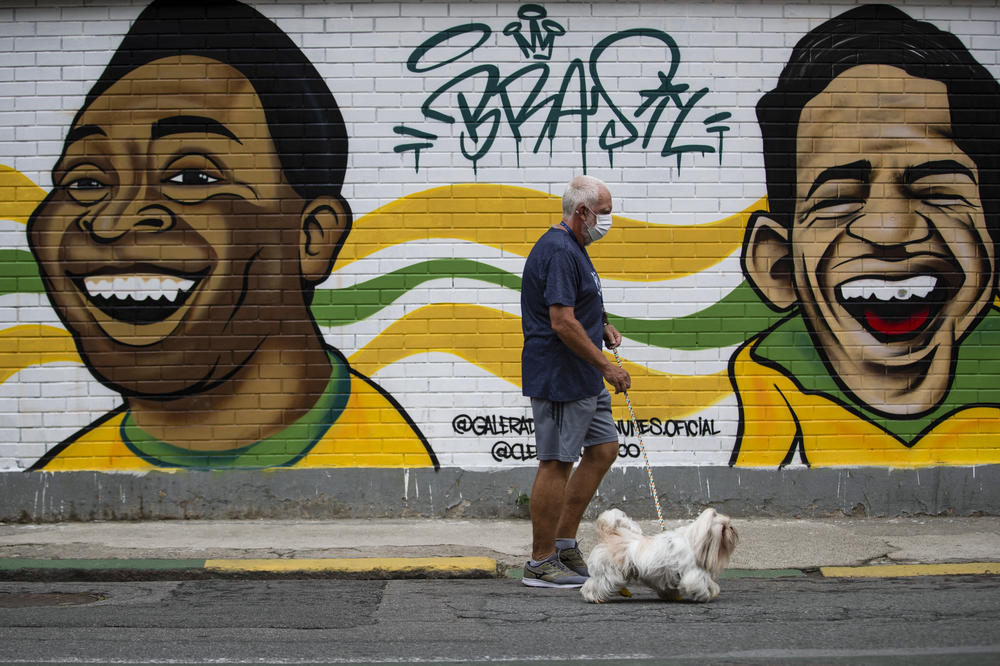Section Branding
Header Content
Brazilians remember Pelé for the 'sense of identity' he gave them
Primary Content
Bocaina de Minas, BRAZIL — Down a dirt road in the mountains of Minas Gerais, Pelé's home state, Jorge Tavares received the news of the star's death from a 4 a.m. newscast.
As a boy, Tavares and his cousins listened to Pelé's World Cup games on the radio. His dazzling performance inspired them to play a game they had never seen, at first using a ball of socks and string.
"He leaves a legacy, a person of color who was crowned king of soccer, and he also brought a lot of peace outside Brazil," Tavares, a 67-year-old school-van driver, said at the barbed-wire fence outside his home. "He represented Brazil to everyone abroad."
With Pelé's death, Brazilians have lost a piece of their hearts.
On Rio de Janeiro's Ipanema beach, the news broke when Paulo Vinicius was playing soccer with his 9-year-old nephew.
"Pelé represents the best of Brazil: its people, its working class," said Vinicius, 38, a physical-education instructor. "Pelé gives a sense of identity to the Brazilian people."
Roseli Augusto, 55, was at her little bar in the mountains of Minas Gerais when she heard the news.
"Pelé is an idol, the best player in the world," said Augusto. She recalls her father taking a bus to the coastal city of Santos to watch Pelé play. "Many kids, many players, were inspired by him. He is our biggest sports idol."
As a girl, Lucia Cunha listened to Pelé's World Cup exploits while huddled around a radio with her siblings. She read about him in newspapers used to wrap bread.
"He was a symbol of soccer, a great player, a simple, humble person, a person of God, a good person, who did everything that he could," Cunha said.
In Santos, Nicolas Oliveira, 18, was outside the stadium along with about 200 other people. Oliveira said that even replays of Pelé's sensational playing make him swell with emotion.
"Pelé is a Black man from the interior of Minas Gerais state," Oliveira said. "I'm here because of what he did, for the soccer he played, for the soccer he improved and for the future players he helped mold and inspire."
Everton Luz, a 41-year-old lawyer, was crying outside the hospital with a Santos club flag wrapped around him. He had come directly from work to pay tribute to the player whose performances had electrified his own dad, and prompted decades of stories.
Luz recounts those stories to his own two children, and shows them videos of the idol. He recalled seeing Pelé in person once, watching a game at a stadium.
"We managed to get close to his box, and he waved goodbye," Luz said. "He was an example of the Brazilian, of what we could become."
Copyright 2022 NPR. To see more, visit https://www.npr.org.



